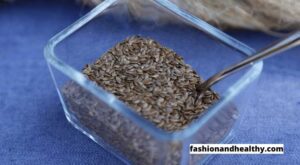
Chia seeds are a super food obtained from the seeds of the Salvia hispanica plant. The word “Chia” means “strong” in the Mayan language.
Chia seeds are packed with many nutrients and health benefits. They are especially rich in fiber, protein, omega-3 fatty acids, antioxidants and minerals. They also do not contain gluten and can be preferred with their low carbohydrate content.
How to Use Chia Seeds?
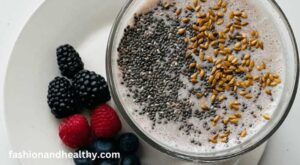
Mixing with yoghurt or milk:
You can consume chia seeds by mixing them with yoghurt, cottage cheese or milk. Add some chia seeds to a bowl or glass and pour yoghurt or milk over them. You can consume the mixture after waiting a few minutes. Optionally, you can add sweetener or fruit.
Sprinkling on salads :
You can sprinkle chia seeds on your salads. You can add fiber and nutritional value by adding a few tablespoons of chia seeds to your salad. Chia seeds add a slight crunch to the salad.
More Details: Chia Seeds for Weight Loss
Using in recipes:
Chia seeds can be used in a variety of recipes. For example, you can add it to pastries such as cakes, bread, and cookies. Chia seeds can provide extra moisture considering the amount of liquid in the recipe.
Using in smoothies:
Chia seeds can be used as an excellent addition to smoothies. Add some chia seeds to the blender along with the other ingredients in your smoothie recipe and mix. This way, you can make a nutritious addition to your smoothie.
Chia Seed Calories and Nutritional Values:
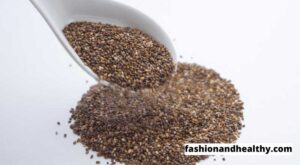
Chia seeds are especially rich in fiber, protein and omega-3 fatty acids. It also contains minerals such as calcium, phosphorus, magnesium and manganese. Chia seeds support digestion and provide a feeling of fullness, especially thanks to their fiber content. Omega-3 fatty acids positively affect heart health. Therefore, chia seeds can be an important part of a healthy diet.
| Nutritive value | Quantity (28g) | Daily Percentage |
| Calorie | 138 kcal | 7% |
| Protein | 4.7g | 9% |
| Oil | 8.6g | 13% |
| carbohydrates | 12.3g | 4% |
| Fiber | 9.8g | 39% |
| Omega-3 Fatty Acids (ALA) | 4.9g | – |
| Calcium | 177 mg | 18% |
| Phosphorus | 265 mg | 27% |
| Magnesium | 95.8 mg | 24% |
| Manganese | 0.6mg | 30% |
What are the Benefits of Chia Seeds?
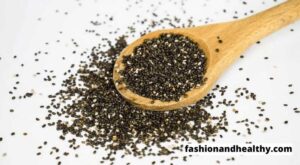
Supports Skin Health:
Chia seeds are rich in minerals and vitamins, especially zinc, selenium and B vitamins, which are important for skin health. The anti-inflammatory properties of chia seeds can reduce inflammation in the skin and help heal skin problems such as acne.
Chia seeds are a natural moisturizer used in skin care. The seeds have water absorbing abilities and absorb water when they come into contact with the skin, thus helping to maintain skin moisture.
It has anti-inflammatory properties:
Chia seeds are also rich in antioxidants. Antioxidants can reduce oxidative stress in the body by neutralizing harmful molecules known as free radicals. Oxidative stress is considered one of the root causes of inflammation and many diseases. Chia seeds may help fight inflammation and reduce the risk of chronic diseases.
More Details: Healthy eating habits to avoid heart disease
May Make Weight Loss Easier:
Chia seeds contain high amounts of fiber, which can help with weight control. Fiber provides a feeling of fullness and keeps you feeling full for longer. Therefore, chia seeds can reduce the tendency to overeat when used in meals or snacks.
Chia seeds have high water absorption capacity. When they come into contact with liquid, they swell and take on a gel-like consistency. This can increase the feeling of fullness by taking up more space in the stomach.

Source of Vitamins, Minerals and Fiber:
Chia seeds are rich in soluble and insoluble fibers. This regulates digestion, provides a feeling of fullness and prevents constipation. Chia seeds contain a number of minerals and vitamins such as calcium, magnesium, phosphorus, iron and B vitamins .
Chia seeds contain high amounts of omega-3 fatty acids , especially alpha-linolenic acid (ALA) . Omega-3 fats can help with brain health, heart health and fighting inflammation.
Chia seeds contain high amounts of soluble and insoluble fiber. These fibers regulate the digestive system, slow down the digestive process and provide a feeling of fullness. It also supports digestive system health and reduces the risk of constipation.
Protects Cardiovascular Health:
Omega-3 fatty acids and fiber help chia seeds support heart health. They can lower blood pressure and improve cholesterol levels. Chia seeds contain potassium, which may help lower blood pressure. High blood pressure can increase the risk of cardiovascular disease, so regulation of blood pressure is important.
Chia seeds are rich in omega-3 fatty acids, especially alpha-linolenic acid (ALA). Omega-3 fatty acids help maintain heart health, reduce inflammation and support brain function.
Strengthens the Immune System:
Chia seeds are rich in antioxidants. Antioxidants can reduce cellular damage and maintain the health of the immune system by fighting free radicals. Its high fiber content supports intestinal health as well as regulating digestion. A healthy gut is important for the immune system; because most immune cells are located in the intestine.
Balances Blood Sugar:
Chia seeds have a very low glycemic index. The glycemic index is a measure of how quickly a food raises blood sugar. Foods with a low glycemic index raise blood sugar more slowly and steadily.
More Details: Flax Seeds Uses And Health Benefits
Chia seeds may be especially beneficial for conditions that require blood sugar control, such as type 2 diabetes . However, if you have a specific treatment plan for any health condition or are taking medications, you should talk to your doctor or a nutritionist about adding chia seeds or other nutrients to your diet.
It has an antioxidant effect:
Chia seeds are rich in antioxidants. Antioxidants prevent cell damage and slow down the aging process by fighting free radicals. It also strengthens the immune system and provides protection against diseases.
Rich in minerals and vitamins :
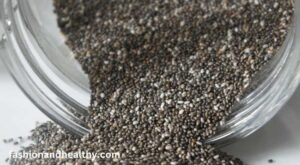
Chia seeds contain important minerals such as iron, calcium, magnesium, phosphorus, potassium and zinc, as well as vitamins such as B vitamins and vitamin E. These minerals and vitamins support bone health, contribute to energy production and improve overall health.
Improves sports performance:
Chia seeds are popular among athletes because they provide long-lasting energy. When they come into contact with liquid, they form a gel-like structure, absorbing water more slowly and providing energy in the body for a longer time.
What are the Side Effects of Chia Seeds?
Chia seeds may have some side effects. Some people may be allergic to chia seeds. Allergic reactions may include symptoms such as skin rashes, itching, watery eyes, nasal congestion and difficulty breathing. If you experience an allergic reaction from chia seeds, you should stop consuming them and consult a healthcare professional.

Since chia seeds are rich in fiber, they can cause digestive problems when consumed excessively. Problems such as constipation or abdominal pain may occur, especially if not enough fluid is consumed. For this reason, you should take care to drink plenty of water while consuming chia seeds.
Chia seeds contain omega-3 fatty acids and can speed up blood clotting. For this reason, people who use blood thinners or have blood clotting problems should consume chia seeds carefully.
Chia seeds, even a small amount, can be calorie-dense. It may contribute to weight gain when not consumed in a controlled manner.
Chia seeds may help balance blood sugar, but people with diabetes should monitor their blood sugar closely before consuming chia seeds.
More Details: Health Benefits Of Peanut
Excessive use of chia seeds also causes negative health consequences. First of all, its oily structure and strong ingredients tire the stomach.
In addition, it is recommended that people with herbal allergies should have a test done before consuming chia seeds. Since they are not among the main nutrients in our country, it is generally unknown whether one is allergic to tropical plants.
For this reason, a small amount should be tried and tested to see if it has any side effects. It is recommended that people with different chronic diseases or low food tolerance consult their doctor before starting to consume chia seeds.

